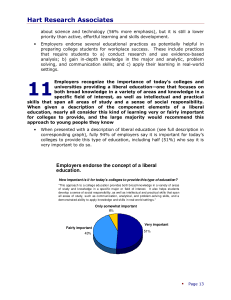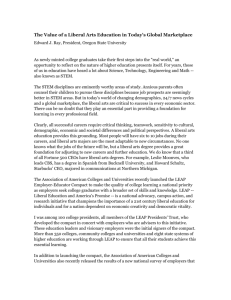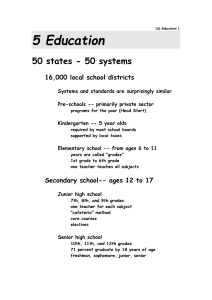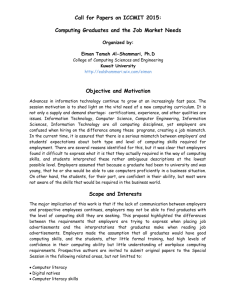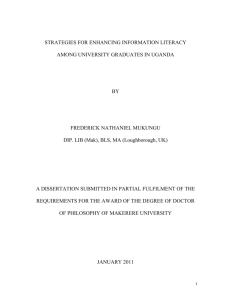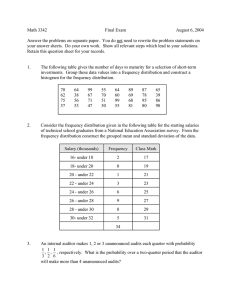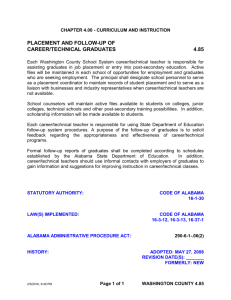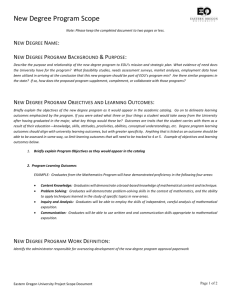Chronotype - University of Wisconsin
advertisement
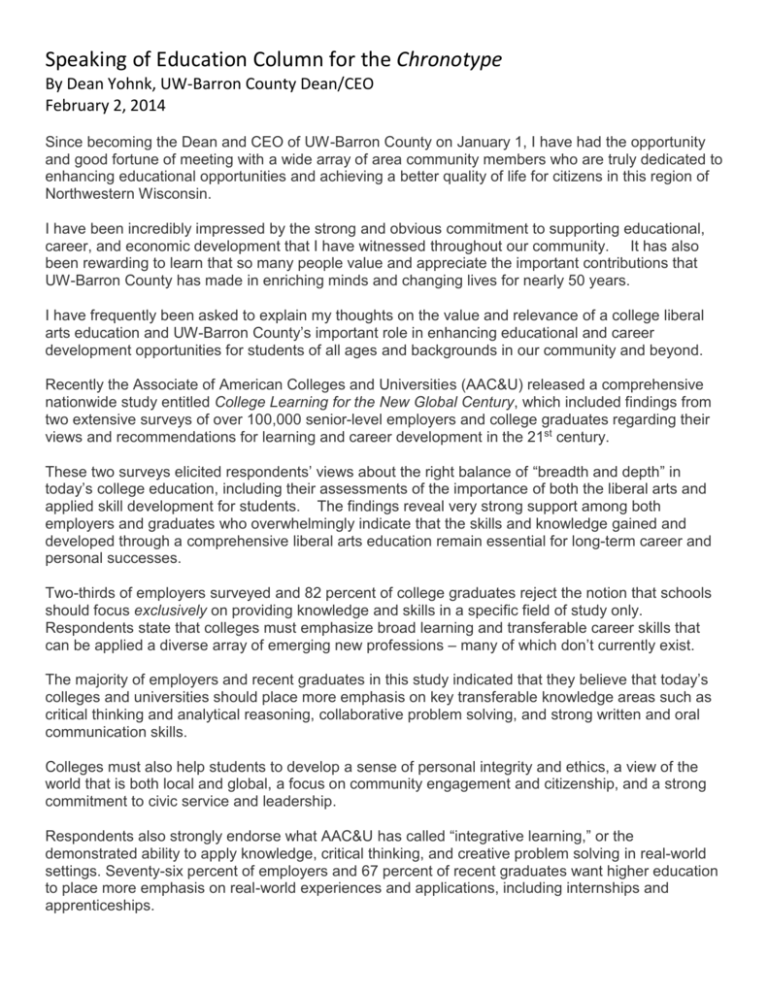
Speaking of Education Column for the Chronotype By Dean Yohnk, UW-Barron County Dean/CEO February 2, 2014 Since becoming the Dean and CEO of UW-Barron County on January 1, I have had the opportunity and good fortune of meeting with a wide array of area community members who are truly dedicated to enhancing educational opportunities and achieving a better quality of life for citizens in this region of Northwestern Wisconsin. I have been incredibly impressed by the strong and obvious commitment to supporting educational, career, and economic development that I have witnessed throughout our community. It has also been rewarding to learn that so many people value and appreciate the important contributions that UW-Barron County has made in enriching minds and changing lives for nearly 50 years. I have frequently been asked to explain my thoughts on the value and relevance of a college liberal arts education and UW-Barron County’s important role in enhancing educational and career development opportunities for students of all ages and backgrounds in our community and beyond. Recently the Associate of American Colleges and Universities (AAC&U) released a comprehensive nationwide study entitled College Learning for the New Global Century, which included findings from two extensive surveys of over 100,000 senior-level employers and college graduates regarding their views and recommendations for learning and career development in the 21st century. These two surveys elicited respondents’ views about the right balance of “breadth and depth” in today’s college education, including their assessments of the importance of both the liberal arts and applied skill development for students. The findings reveal very strong support among both employers and graduates who overwhelmingly indicate that the skills and knowledge gained and developed through a comprehensive liberal arts education remain essential for long-term career and personal successes. Two-thirds of employers surveyed and 82 percent of college graduates reject the notion that schools should focus exclusively on providing knowledge and skills in a specific field of study only. Respondents state that colleges must emphasize broad learning and transferable career skills that can be applied a diverse array of emerging new professions – many of which don’t currently exist. The majority of employers and recent graduates in this study indicated that they believe that today’s colleges and universities should place more emphasis on key transferable knowledge areas such as critical thinking and analytical reasoning, collaborative problem solving, and strong written and oral communication skills. Colleges must also help students to develop a sense of personal integrity and ethics, a view of the world that is both local and global, a focus on community engagement and citizenship, and a strong commitment to civic service and leadership. Respondents also strongly endorse what AAC&U has called “integrative learning,” or the demonstrated ability to apply knowledge, critical thinking, and creative problem solving in real-world settings. Seventy-six percent of employers and 67 percent of recent graduates want higher education to place more emphasis on real-world experiences and applications, including internships and apprenticeships. All in all, the message is clear. The bar is rising for college graduates who possess a combination of broad knowledge gained in a liberal arts education and practical skills and abilities that prepare them for ever-changing and evolving careers in the 21st century. Integrative learning rooted in the liberal arts tradition with an emphasis on preparing our students and graduates for successful careers and fulfilling lives is at the heart of what we do at UW-Barron County. We are truly proud of our important role in enhancing and enriching the lives of our students and the communities that we serve.
